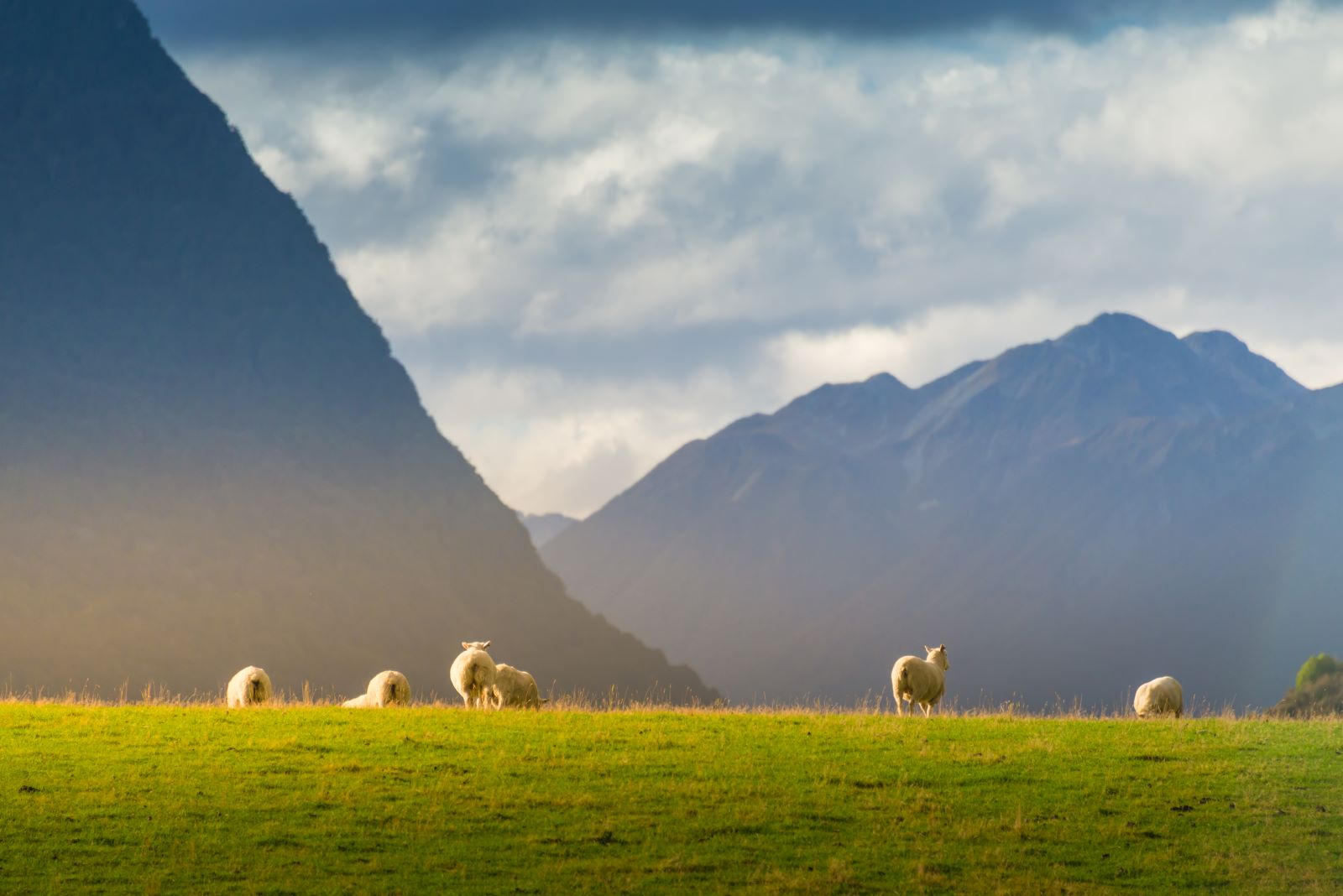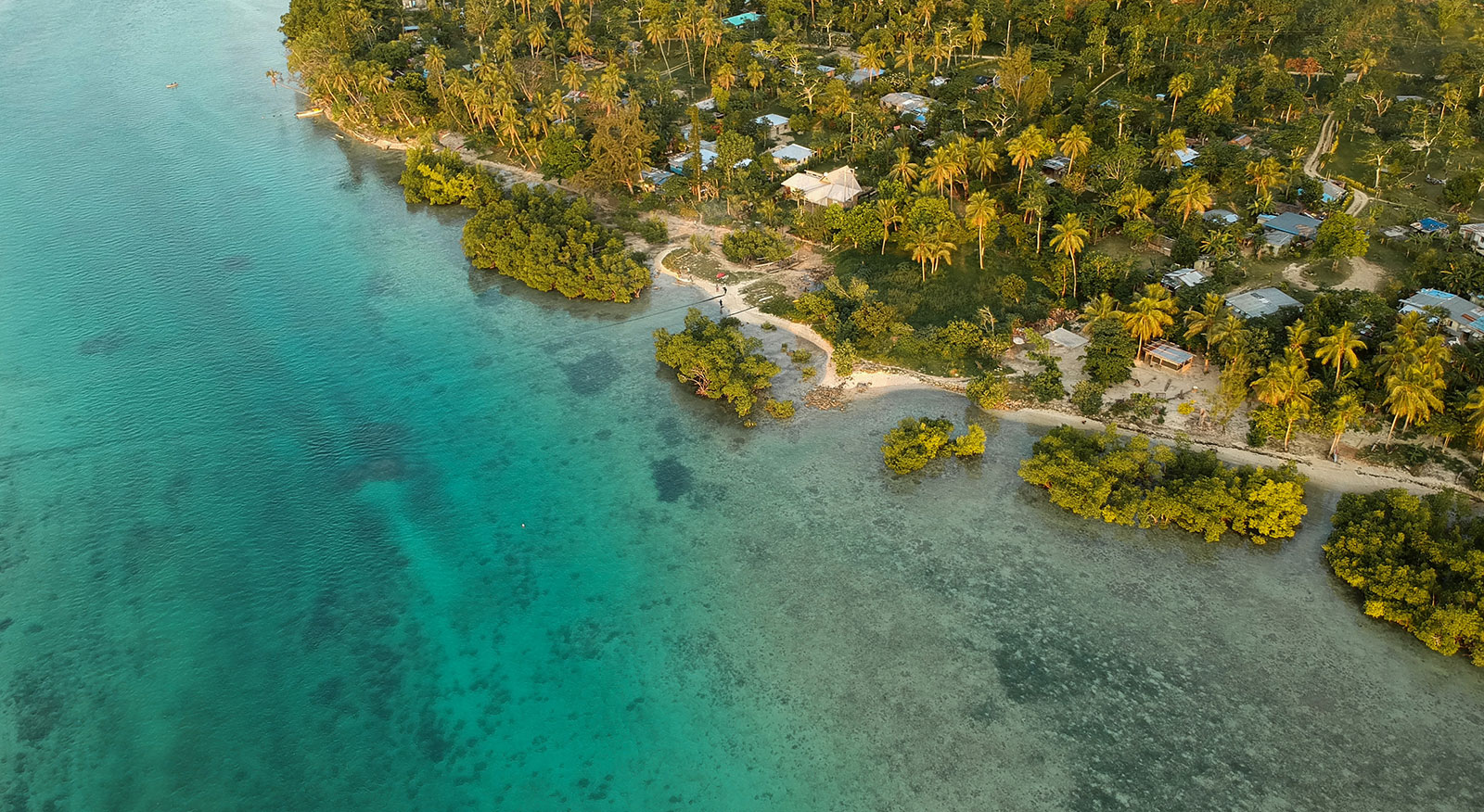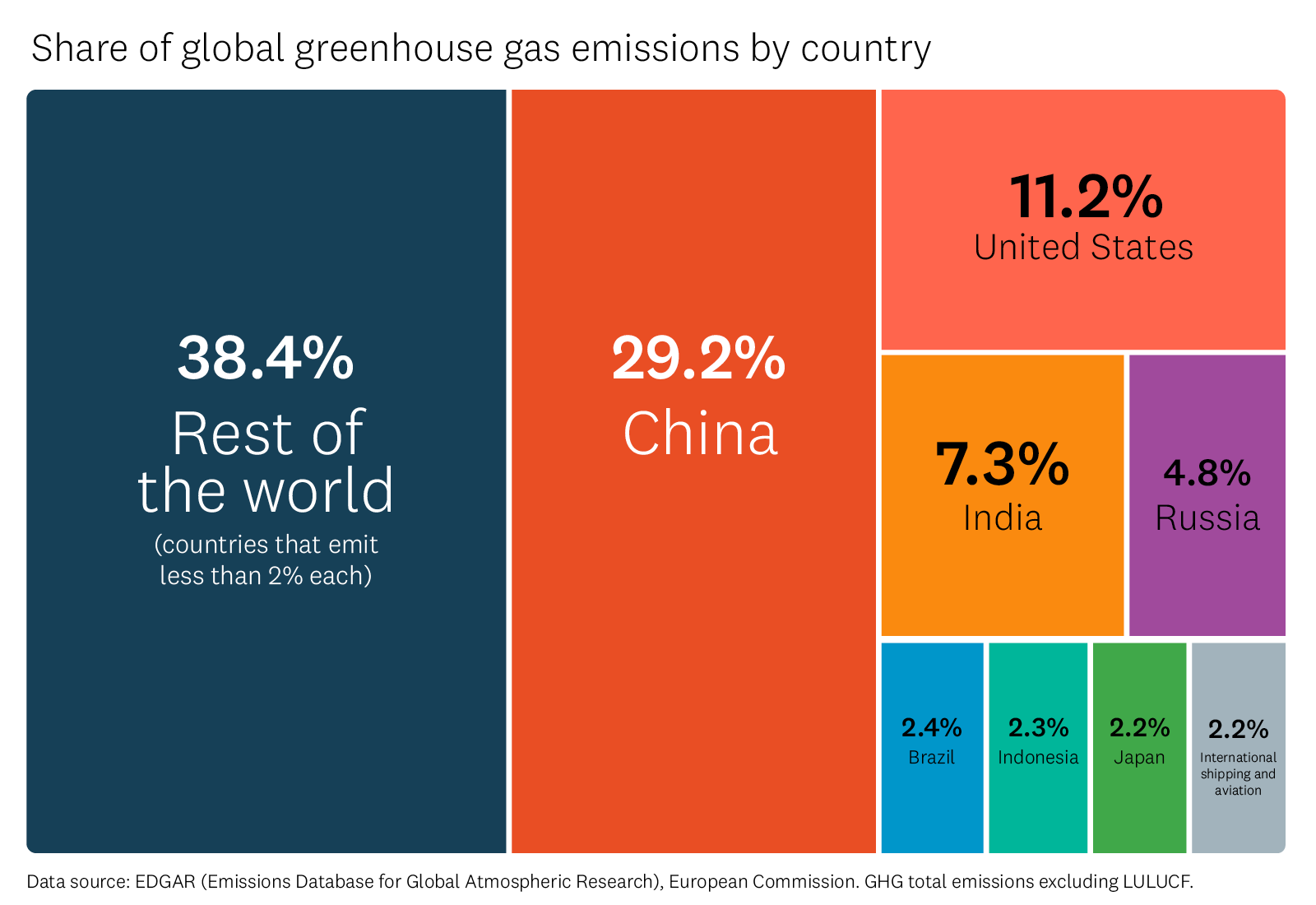Aotearoa New Zealand is home to only 0.06% of the world's population, and some might ask why what we do about climate change matters — or why we should be doing more.
The fact is, most countries in the world could argue that they’re too small to have an impact. But climate change can’t be fixed by China and the US alone.
And actually, here in New Zealand we’re in a good position to build momentum in the transition away from fossil fuels. Taking action on climate change is an investment in ourselves, leading to better outcomes for us both environmentally and economically – as we strengthen our reputation as ‘clean and green’.
We’re already making good progress – which shows that by making climate friendly choices as individuals, businesses and as a community, we can make a real difference.
We've started to bend the curve
It’s been a long time coming, but it is beginning to appear that we have started to bend the curve on our emissions.
Between 1990 and 2021 New Zealand’s emissions increased by 19% — but since their peak in 2006 our emissions have been fairly stable, and the latest data from Stats NZ shows that in 2022 our emissions decreased for the third year in a row.
We’re not acting alone – and our emissions matter
New Zealand's population is about the same as a lot of places around the world — think Sydney, Los Angeles, Berlin, Norway or Singapore. If all of those places opted out of climate action or were slow to make changes, the impact on the planet and people would be significant.
China and the US produce the largest chunks of global emissions. But collectively what adds up to the biggest ‘chunk’ is the 200 countries in the world that produce less than 2% each — including the UK, Germany and the UAE as well as New Zealand.
For the world to contain global warming to less than 2°C (which is considered a critical threshold for limiting the worst effects of climate change), we all have to pull our weight, together, to reduce emissions.
We emit more than our fair share
New Zealand contributes about 0.15% of the world's gross emissions. That's three times more than our fair share when you look at our proportion of the global population.
We are 19th in the world for greenhouse gas emissions per capita, comparable to the US and Russia, and well ahead of China and India.
In 2021, the average emissions of OECD countries were 11 tonnes of CO2e (carbon dioxide equivalent emissions) per capita. New Zealand's was 15 tonnes of CO2e per capita. We have the 4th highest emissions per capita in the OECD.
As a signatory to the Paris Agreement we have committed to emissions reduction targets to limit the increase in global temperatures. If we do not make our targets, we may have to make up the difference with potentially expensive overseas carbon offsets – and it could have a negative impact on our international image.
Rod Carr, Chair of the Climate Change Commission, had some insights on our size in a consultation on the Commission's draft advice to Government in 2021.
"If we took all our agricultural emissions out of our emissions profile, and left all China's manufacturing in their profile, our emissions would still be twice theirs per capita."
"We are among the richest nations in the world and we have access to technologies that should we choose to, we can reduce our emissions… We can afford it, and arguing that because we are little we won't make a difference, would have meant that every New Zealander who ever fought in any war wasted their effort."
What’s good for the climate is good for the economy
New Zealand has a strong international image as a ‘clean, green’ country and this reputation is important given our heavy reliance on export industries.
Global consumers are increasingly concerned about the sustainability credentials of products, and the international businesses that our industries supply are looking to reduce emissions throughout their supply chains. For example, Tesco – one of the world’s largest retailers – has committed to become carbon zero across its entire footprint “from farm to fork”.
To remain competitive in the global market, New Zealand businesses are adapting to the growing demand for low-emissions products – and there is a big opportunity to be leaders and innovators in this space.
We are already leading the world in methane reduction research – which is critical given our high proportion of emissions from agriculture, and the importance of the meat and dairy sectors to our economy.
In the aviation space, Air New Zealand has been at the forefront of researching and trialing sustainable aviation fuels. Back in 2008, in a world-first, they flew a Boeing 747 test flight powered by 50-50 mix of sustainable aviation fuel and jet fuel, proving that the biofuel could be used in airplanes without the need for engine modification.
By developing innovative low-carbon technologies and processes, not only could New Zealand become a world-leader, but we could help other countries adopt low-carbon systems too – our size does not have to limit the impact we can have.

We are well-placed for a clean energy transition
Here in New Zealand, we have access to plentiful renewable energy sources that will enable a fast and lasting positive impact on our emissions. We are currently still heavily reliant on fossil fuels like coal and gas for industrial needs, and on petrol and diesel for transport – and this accounts for about 40% of our emissions.
But our electricity grid is highly renewable (and therefore produces minimal emissions), and our forestry sector has the capacity to supply waste wood (biomass) to industry for use as a low-emissions alternative to coal.
The more we switch from fossil fuels to electricity and other sustainable fuels, the better. The impact of switching is immediate, and we already have the technology. New Zealand businesses are getting on board – for example our emissions-intensive steel industry is set to cut its carbon footprint in half by transitioning to electricity from coal, and McCain Foods has eliminated almost all emissions from its Timaru plant through various energy efficiency initiatives and switching from coal to biomass.
Our biggest opportunity for emissions reduction is in transport, through things like switching to electric vehicles and other transport choices that reduce how much petrol and diesel we rely on – like biking and using public transport when we can! We’re making good progress in the switch to EVs – in fact, from 2021 to 2022 New Zealand had the third highest increase in EV sales in the world (roughly 20% of all car sales are now EVs).
By making climate friendly choices as individuals, businesses and as a community, we can make a real difference.
Being a good neighbour is part of our DNA
New Zealand has a strong affiliation with the Pacific Island region. Around 8% of our population is of Pacifika descent. We have a long-standing tradition of providing support to countries in the Pacific, and climate change is no different.
Island nations like Samoa, Tonga, and Niue, contribute almost nothing to global greenhouse gas emissions (the entire Pacific Island region contributes about 0.03% in total). But they are especially vulnerable to the effects of climate change, from rising sea levels to extreme weather events like cyclones, droughts and flooding, and increasing ocean temperatures.
The Internal Displacement Monitoring Centre predicts that over 50,000 Pasifika people could lose their homes each year due to the increasing frequency and severity of extreme weather events caused by climate change. Without the land mass and resources that larger, more affluent countries like New Zealand and Australia have, the Pacific islands are limited in their capacity to adapt to a changing climate.
Despite their low emissions, Pacific Island countries and other Small Island States have not let their small size hold them back when it comes to action. Niue was among the first countries in the world to become carbon neutral, and leaders across the region have been loud, passionate voices for action on the international stage.
We have a responsibility to look out for those countries that are even smaller and more at risk than ourselves and make sure that our actions don't put them at even greater risk.

We’re known for showing leadership on the world stage
We've proven many times that size doesn't matter when we've led the way on other important issues. Doing that got the attention of other countries and their citizens, and often led to widespread change.
Think back to 1893, when New Zealand became the first country in the world to give the vote to women. We set an example that the rest of the world followed. Or to 1987, when New Zealand passed a law to become a nuclear-free zone, the first Western-allied country to do so. Or more recently, with our health response to the COVID-19 pandemic.
As a country, we're more than capable of making bold moves and taking the lead, encouraging others to follow. We're already doing that on some areas of climate change — like being the first country to enshrine our net-zero target in law in the Zero Carbon Act. But there is more we can do.
And by taking action, we’ll leave New Zealand in a better position for generations to come, both environmentally and economically.
References and data sources
- GHG emissions of all world countries – EDGAR, European Commission (external link)
- OECD emissions data (external link)
- Stats NZ: GHG emissions (industry and household)(external link)
- Air New Zealand sustainable aviation test flight(external link)
- Drive Electric – Countries with the highest increase in EV sales(external link)
How to take action
-
Everyday life
Make climate-positive choices in your everyday life, and learn what has the biggest impact.
-
On the move
Check out these lower emissions transport options and pick what suits you - or switch it up one trip at a time.
-
In your business
Running a more profitable, climate-friendly business starts with a plan.

